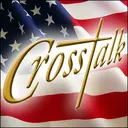The Real Story Behind Thanksgiving
Series Crosstalk America
William (or "Bill") Federer is is an American historian and writer, having authored a number of books specializing in the history of America and of the world, as they have been impacted by the Bible and by Jesus Christ. His best known publication is America's God and Country- Encyclopedia of Quotations.He is also the founder of Amerisearch, Inc., which produces a daily radio commentary describing historical events for each day, called "American Minute".
In this message, given at a VCY America Rally in November, 2006, Bill Federer provides a new perpsective on the American holiday of Thanksgiving. He starts with the Roman Empire and continues to the present, showing how and why the Pilgrims came to this continent, and laying the foundation for being thankful despite extremely difficult times.
| Sermon ID | 1127192336335017 |
| Duration | 53:16 |
| Date | Nov 25, 2021 |
| Category | Current Events |

